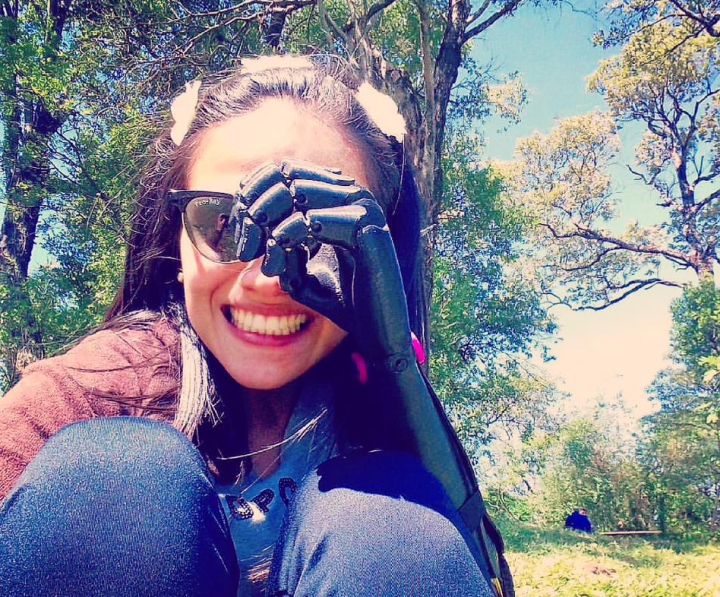
For the past several years, major innovations in both prosthetics and 3D printing have made it possible for humans to engineer almost-better-than-new body parts like never before (think 3D-printed skin). But sadly, much of this innovation comes with high price points. That, Po 3D believes, is a problem — particularly for countries like Paraguay that are most in need of this kind of technology. As Po co-founder Eric Dijkhuis tells TechCrunch, Paraguay is “a country full of amazing people, but also a lot of challenges. There is a high number of amputations per day, upper limbs being a high percentage of them, due to a lack of work safety regulations combined with vulnerable working areas — and a lot of motorcycle accidents.”
That means plenty of need for prosthetics. Sadly, however, less than 3 percent of those in the country can actually afford the necessary prosthetic. That’s where Po comes in.
The company originally designed and printed a prosthetic hand and lower arm that varies in size, color, and other basic specifications, but the company really struck gold when it partnered with Thalmic Labs and its Myo device. This device encircles the user’s arm, keeping tabs on bioelectric signals that correspond with certain movements. It then sends those signals wirelessly to companion devices, like a prosthetic. As a result, Po created the MyPo, which “mirrors the traditional functionality of a prosthetic hand” at a mere fraction of the cost, said Dijkhuis,
It’s really the cost piece that makes Po and its products stand out. After all, there are plenty of 3D-printed prosthetics out there. But Po makes them accessible. “We help the user pay a figurative amount that they can afford by subsidizing the rest through private donations,” Dijkhuis explained. “We also work with independent professionals, NGO’s, allied businesses, and public organizations that support our work. Our model is currently being replicated in North Argentina and South Brazil by Po partners, but our entire workflow is going to be open so anyone can start their own chapter with standardized, ready-to-go procedures.”
Because it shouldn’t cost six million dollars to be a fully functioning human.


